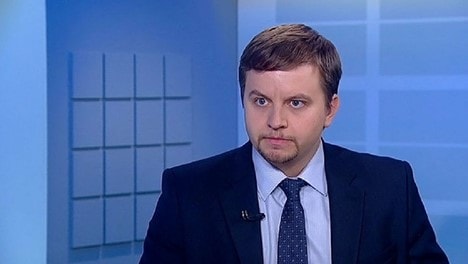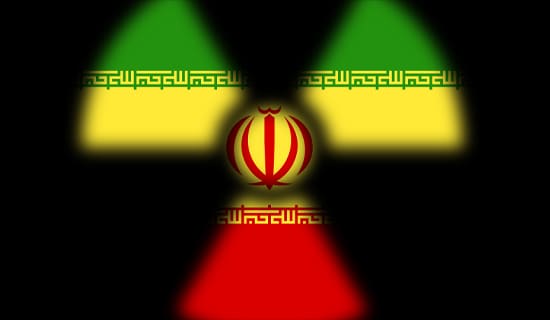December 26, 2021, marked 30 years since the dissolution of the Soviet Union and many newspapers ran commemorative articles. Although the pendulum has swung from elation over the Soviet Union's collapse to the point that Vladimir Zhirinovsky the leader of Russia's "Liberal-Democratic" Party could table a proposal in the Duma declaring: 'The State Duma… considers the collapse of the U.S.S.R. the main geopolitical catastrophe of the 20th century, which led to disintegration in various areas of society.' The LDP declaration also asserts that the Soviet Union's disintegration led to the 'exacerbation of the economic and political crisis and the emergence of conflicts on national grounds.'[1] Ruslan Khasbulatov, First Deputy Chairman of the Russian Supreme Soviet in 1991, and an avowed opponent of Russia's first president Boris Yeltsin lamented: "I believe that the collapse of the USSR was an irrational, destructive event of great international importance. It destroyed the wholeness and stability of the world.
"After the USSR's disappearance the US found itself responsible for the fate of the world, but it couldn't fulfill this task. What we are experiencing now are the consequences of that tragedy."[2] However, the newspaper articles also ran opposing opinions claiming that the Soviet Union fell due to its own shortcomings, and it could not be salvaged.
Political analyst Alexander Vedrussov writing in Izvestiya calls for a critical reassessment of the Soviet experience avoiding the twin pitfalls of succumbing to either pro-Soviet mythology or anti-Soviet frenzy. Despite the attempt at evenhandedness, Vedrussov credits Russia's recovery from the abyss of the 1990s to a return to state planning and a semi-restoration of Soviet era values. Ukraine, formerly a prosperous region in the Soviet Union, had gone the opposite way, and embraced unbridled capitalism, and was a basket case as a result.
Vedrussov's article follows below:[3]

Alexander Vedrussov (Source: Media.az)
"At the beginning of the 20th century, philosopher Vasily Rozanov noted the rapid collapse of the Russian Empire in mercilessly succinct terms, 'Russia melted away in two days. At most - in three.'
"December 25, 1991, the Soviet empire that while resoundingly rejecting of its predecessor's historical legacy, essentially reconfigured it in new, even more audacious geopolitical boundaries, ceased to exist.
"At exactly 7:25 p.m. Moscow time, the red flag with sickle, hammer, and five-pointed star stopped waving over the presidential residence of the Soviet Union and the RSFSR in the Kremlin. Over the past 30 years, however, no one has been able to find the right words to issue an accurate verdict on the end of the Soviet era.
"Sometimes, it seems that the Soviet Union did not vanish into oblivion, but as if it had dissolved into our present.
"In the first post-Soviet years, both Russia and a fortiori the former 'imperial outskirts' repudiated the communist past with varying degrees of exaltation. They enthusiastically renamed streets, they diligently rewrote history.
"In the new century, there has been a gradual rethinking of the Soviet legacy in Russia. First, the Soviet anthem with new words, but a chillingly familiar sound was returned. Then on May 9, the red banners began to be displayed. And Victory Day as a whole became established in the public consciousness as one of the few official and simultaneously national holidays.
"It is enough to participate in the mass 'Immortal Regiment' march at least once to feel and understand that in many regards we are still Soviet people. Especially in contrast to our former compatriots in Ukraine, who literally decided to 'tear away' the historical layers of communism from their lands. And, let's note, they have been quite successful in this process. As a result, it's hard to find in the once-flourishing country not only a monument to Lenin, but also a Soviet-era industrial giant that wouldn't be eking out a pathetic post-Communist existence.
"If Russia recovered after the troubled 1990s, albeit with great difficulty, but still came to its senses and largely abandoned the construct of a destructive 'market dictatorship,' Ukraine has made a different choice. In 2014, Kiev began the final round of the 'Get Away from Moscow!' race, by willingly surrendering to market elements and the pro-Western cargo cult.
"In Russia however, a bill on strategic planning is passed, and an active process of import substitution begins. The country's targeted bet on domestic production capacities, made without the former Soviet scale, still bears its first positive fruits. In practice, it turned out that none of the crucial sectors of the Russian economy (i.e. from agriculture to high-tech machine building) can develop soundly without some elements of state planning.
"Following the Soviet Union's collapse, Russia first underwent devastating 'shock therapy,' and then withstood years of sanctions pressure from the West before giving up its blind faith into the myth of the 'unseen hand of the market.' As the saying goes, 'we have been there, done that.'
"Naturally, the Soviet 'command-administrative' experience, with its obvious expenses and distortion, can no longer be automatically reproduced in modern conditions. Although at the modern technological level, as China's success demonstrates, plan economy mechanisms that are competently 'fitted' into the global context are very effective. It's no coincidence that over the past three decades, communist China has taken the place of the Soviet Union, which was relegated from the global economic race.
"Anyway, we still need to critically reassess the Soviet economic experience, especially if we want to intensify integration processes in the post-Soviet space. Ukraine, in its decommunization psychosis, has clearly demonstrated a useful counter-example for us all.
"At any rate, the solution to Russia's ambitious development tasks of the 21st century is obvious and urgently requires strategic planning. The success of the Northern Sea Route, of the new Baikal-Amur Mainline, and other infrastructure projects linking the vast country are only possible on a Soviet scale.
"The Soviet social experience is even more valuable. Obviously, during its formative years, when the task was to overcome the industrial and technological gap with the West, whatever the costs, the USSR deployed not only to motivational, but also to coercive mechanisms of labor mobilization. As the state expanded its economic base, it channeled ever increasing resources towards raising social standards. Many of these standards were then unprecedented in global practice, and were therefore gradually adopted by other countries. It is no coincidence that people living in the post-Soviet space still nostalgically remember Soviet housing programs, health-resort services, medicine and education.
"Perhaps the main 'cement' that for 70 years united more than 100 different peoples into one state was ideology. Unfortunately, by the end of the Soviet Union, it first stagnated into rigid 'Suslovshina' [a term referring to the Orthodox Marxist and ideology chief Mikhail Suslov], and later was unceremoniously thrown down the drain of perestroika. But at its core was something that could be highly relevant and valuable in the wake of the collapse of today's global capitalist model of world order. And that is notably a fundamental wager on the individual, his education and personal development, including uncovering collectivist potential.
"The Soviet Union, despite all of it nuances, enshrined the principle of 'man is a friend, comrade and brother to his fellow man'. However, in today's world we are rapidly backsliding to a social order based on an entirely different approach, 'homo homini lupus est,' ('A man is a wolf to his fellow man').
"Soviet man, and polls demonstrate that in Russia and other countries of the former Soviet Union there are quite a lot of us, who cannot definitively come to terms with this order of things.
"Even 30 years after the collapse of the Soviet Union, our Soviet Motherland's diverse experience, both positive and negative, has not been critically evaluated. To this day, in discussing our communist legacy, some fall into pro-Soviet myth-making, while others, do the very opposite and fall into an anti-Soviet frenzy. Meanwhile, working on the mistakes and duplicating the Soviet Union's achievements under modern conditions could still be of help for developing both Russia itself and the Eurasian integration projects, in which the former Soviet Union member-states participate."








